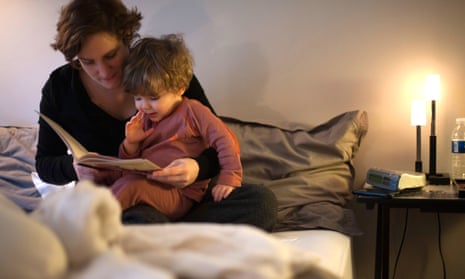The childcare sector is facing unprecedented financial challenges due to a sharp fall in income from parents and social distancing putting limits on their capacity, MPs and business leaders have warned.
The women’s organisation the Fawcett Society, along with leading UK business bodies and MPs, have written to the chancellor, Rishi Sunak, to highlight the economic imperative of supporting the sector in order to protect women’s contribution to the workplace.
This week a report by the Sutton Trust found that one in three nurseries in the most disadvantaged areas of England could be forced out of business due to financial difficulties aggravated by the coronavirus lockdown.
The trust, an educational charity, warned that permanent closure of early years education providers would be hugely damaging for young children from poorer families, and urged the government to spend £88m to protect the sector in line with the support for schools.
The letter, which has been co-signed by Sam Smethers, the chief executive of the Fawcett Society, Mike Cherry, the national chair of the Federation of Small Businesses and the former children’s minister Tim Loughton, among others, calls on the government to take immediate action.
It highlights that the pandemic struck against a backdrop of maternal employment which had risen from 66% to 75% over the past 20 years, bringing more of women’s skills and experience into the workforce.
In order to safeguard and protect women’s contribution to the economy, the letter states that attention must now turn to the struggling childcare sector.
It says: “The risk we face is that as businesses start to recover and the economy begins to open up, the childcare sector will have been so significantly harmed by this crisis that there will be insufficient affordable, quality provision to enable parents to get back to work and support that recovery. We therefore urge you to act and provide urgent additional financial support to the sector.”
Many early years providers were already facing financial problems before the pandemic struck and have relied on emergency government support to stay afloat.
The Early Years Alliance reports that in April, 25% of its pre-school, nursery or childminder members felt it was unlikely they would be operating in a year’s time. Sixty-nine percent expect to operate at a loss over the next six months.
“For those of us who represent businesses, it is clear from our members that, in the absence of sufficient childcare, many employers will face the invidious choice between supporting parents who work for them, and the viability of their businesses. They want to get their staff back to a diverse and inclusive workplace, but this will not be possible without access to high-quality childcare and without a plan for the reopening of schools for all children,” the letter says.
Evidence shows that women are still taking on a disproportionate share of unpaid care in the home and will be most at risk of losing their jobs and the opportunity to advance in their careers.
A Department for Education spokesperson previously said the government was providing significant financial support to protect childcare providers – including through the coronavirus job retention scheme – and had continued early years funding to councils, worth a planned £3.6bn in 2020-21.
“We are investing in earlyyears organisations to help them boost disadvantaged children’s development, with grants targeted at improving outcomes for young children at risk of falling behind by age five, and for those with special educational needs.”
